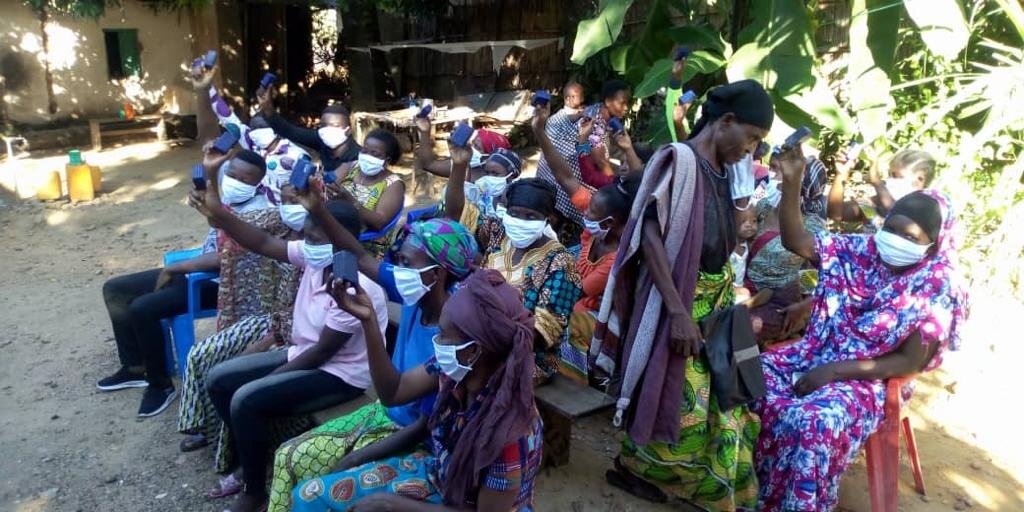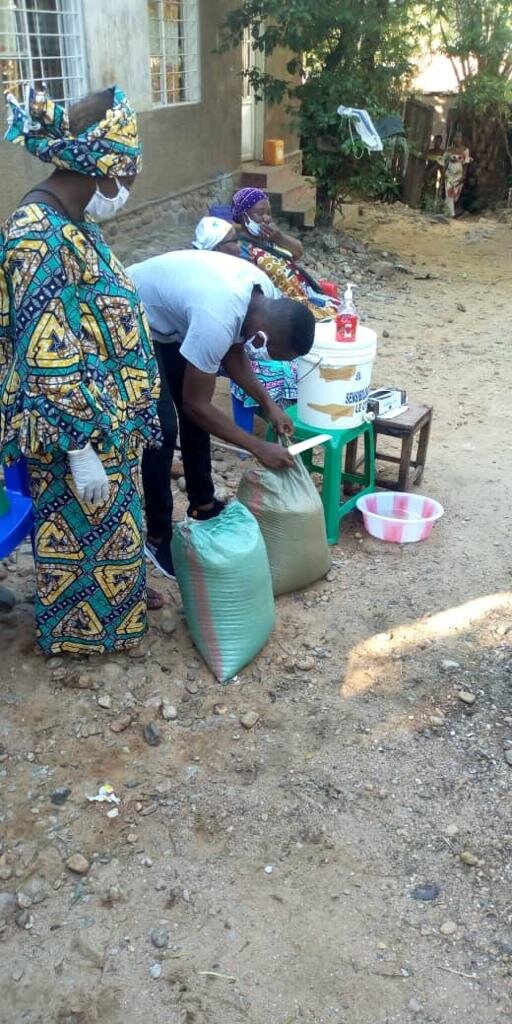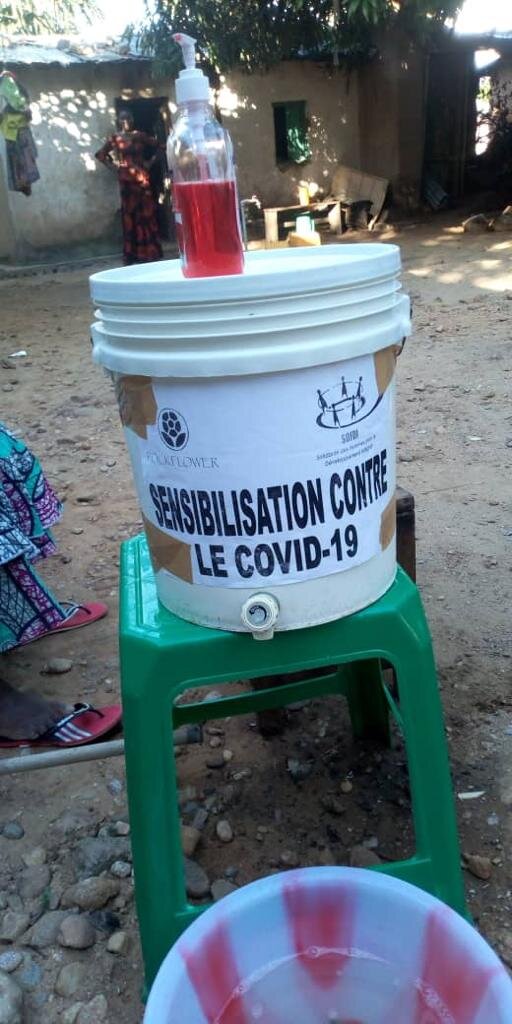Women's Solidarity for the Integral Development (SOFDI) based in the Democratic Republic of Congo has been a Rockflower partner for a number of years. Most recently they have been working to create sustainable livelihoods and improve hygiene in the village of Kazimia through teaching women how to make soap and operate a business. The organization aims to increase the active participation of women in decision making, politics and the governance system of all community structures. Creating opportunities for economic independence while providing education around human rights and financial literacy is a key pillar in achieving this goal.
The province of South Kivu, located in the eastern part of the DRC, has been dominated by armed conflicts for more than two decades. Officially the war in the eastern provinces, which began in 1996, has been declared over. Several peace agreements have been signed, however in reality the war still continues, especially in the poorest parts of the nation. The unemployment rate in urban areas is 22% and school enrollment remains low which is one of the main reasons that new armed groups continue to form.This has led to increases in sexual violence and poverty.
Women in this area hold a great deal of responsibility and very little power to influence change. They care for the children, as well as the medical care of all family members and are responsible for fetching water, cooking on wood fires and preparing meals. With such a high unemployment rate, many women are in a position where they must support their families financially in addition to all of their other duties.
The main source of income in the region is agriculture, although crop yields are highly variable and often do not provide enough food to carry families from one season to the next. Most of the farmers have poor quality seeds and equipment as well. In the village of Kazimia, the nearest town to purchase supplies is nearly 50 kilometers away, and for those who make the journey, the supplies they need are often not in stock.
SOFDI identified an opportunity to improve the local economy in Kazimia by revitalizing the soap making industry. Soap is one of the items that villagers must travel far to purchase and is often out of stock. It was clear that soap would sell in the area, and that it could be made in all seasons for a decent price. This led SOFDI to create the Umoja Ni Nguvu (Unity is Strength) Cooperative to support women in the area and create economic opportunities. They decided to train 15 women in soap making as well as how to manage income and expenses and provided some literacy classes so that the women were well positioned to operate a business. These 15 women are the direct beneficiaries, however the impact on the local economy and hygiene will benefit the whole village.
The first round of training has been highly successful. Throughout the training around 500 bars of palm oil soaps in 3 different shapes were produced. After the training, they produced over 1,500 bars of soap and their first sales allowed the cooperative to purchase more raw materials and continue growing the business. In total they earned the equivalent of $273.15 USD in their first round of sales. More recent sales have been more challenging as the price of raw materials has greatly increased. However, they are still committed to producing soap, even with a lower profit margin and the women who received the training are now ready to train others in soap making.
As the cooperative has gained recognition, their demand has increased significantly, especially because their product dissolves more slowly than factory made soaps. The quality is much higher. Currently production varies from 150 to 300 bars of soap per week and the women work three days each week. They have created a management team to weigh the materials and ensure the business’ success. This new availability of soap has led to a real improvement in the hygiene of families as well. Previously they had to stock up on soap since they needed to travel so far, and many families couldn’t afford to do so. Now they can purchase soap as needed.
The potential for the growth of this business is huge. The members of the cooperative want to work to meet local demand first before expanding into surrounding areas. An unexpected benefit is that many women and young people are coming to the factory to stock up on soap to resell. This is great for the local economy, and the cooperative welcomes it.
SOFDI’s Executive Director, Dr. Alice Lukumbu, who was one of the featured speakers for the recent Rockflower workshop on Peace and Security, said, “The creation of this unit has benefited the women and the whole village in many ways. Before the start of this activity, obtaining soap required great effort because we had to go to Baraka and Uvira to buy it. Not only is the journey tiring for so little, but also the stocks were often limited and one could move around and get nothing in the end. The finalization of the artisanal soap factory cooperative has overcome their last doubts and allows them to dare to believe that their life will no longer be quite as it was before. I think that in addition to the material benefits, such an attitude is beneficial for the advancement of the village.”









